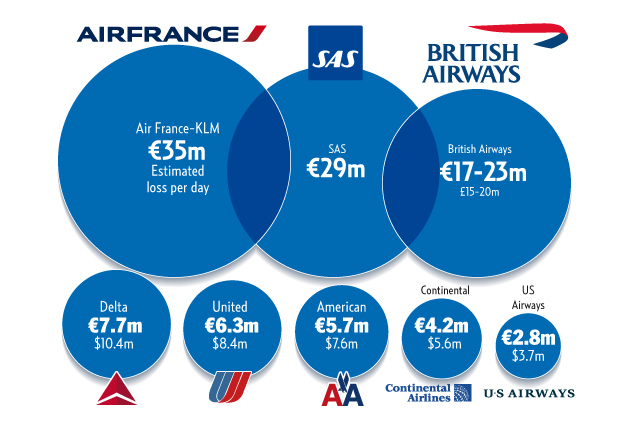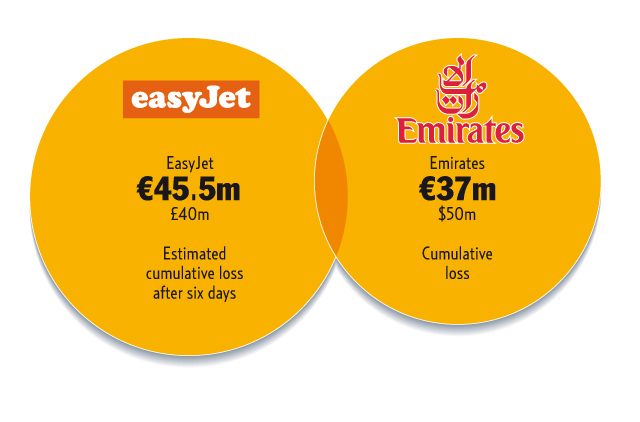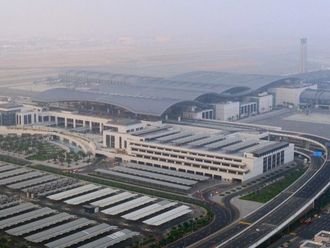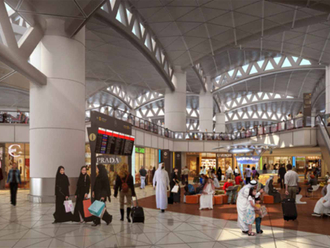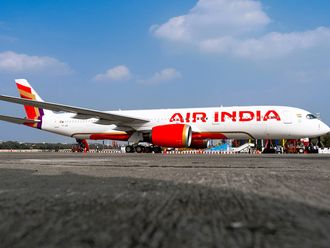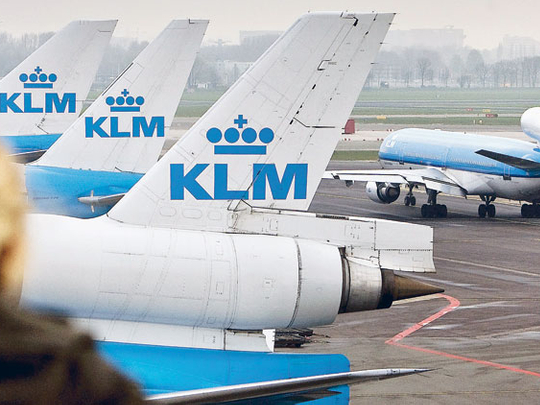
Dubai: As the ash settles, airlines are assessing the financial damage to their business that was already trying to recover from the global economic crisis and a slump in air travel.
It could take days for airline operations to return to normal, but the lost revenues will take much longer to recover as balance sheets feel a serious dent.
The International Air Transport Association said the Icelandic volcano cloud cost airlines more than $1.7 billion (Dh6.24 billion) during six days of disruptions.
Dubai's flagship carrier Emirates said it was losing $10 million a day while the air space was shut. It was also spending about $5-$6 million a day on accommodating stranded passengers in Dubai, president Tim Clark said during a media briefing.
Meanwhile, he said the recovery of the losses, while not the primary concern, would be dealt with, as the airline had no disruption of flights to other regions. He said those routes were still profitable.
"After any crisis, we've always managed to get back in good shape, and fairly quickly," he said.
European airlines, which faced much more difficult circumstances in weathering the storm and were already under financial pressure from falling yields, have turned to their governments for help,
British Airways was one airline that suffered the highest losses as airspace over its base in London saw the longest closure.
With all planes grounded during the UK flying ban, the airline forecast lost passenger and freight revenue together with the costs incurred on supporting passengers to be approximately £15-£20 million (Dh85-113 million) a day.
"To assist us with this situation, European airlines have asked the EU and national governments for financial compensation for the closure of airspace," said president Willie Walsh.
He said the act had a precedent as compensation was paid after the closure of US airspace following the terrorist events of 9/11. "Clearly the impact of the current situation is more considerable," he said.
After a bad 2009, the airline was just emerging with a profit in the third quarter.
It is also recovering from industrial action last month that cost it almost £40-£45 million.
Scandinavian SAS said it lost about 460 million crowns (Dh233 million) due to ash disruptions, while Air France-KLM Group lost about 35 million euros (Dh171 million) a day.
While European carriers ask for state support, Emirates said that it would not follow the same course of action. "We can't ask the government for help. We have to manage this, and we will," Emirate's Clark said.
In a report, Euromonitor International said closing the airspace cut the integral supply for the European continent and its global distribution link.
Analysts from RBS estimated that the European economy suffered a loss of $500 million a day because of employees being absent from work, with many schools and hospitals paralysed due to the environmental havoc due to people being stranded.
"Supplies of imported flowers, such as from Kenya, and exotic fruit and vegetables along with pharmaceutical companies with high value and low weight products and post office services are among those which heavily rely on the air freight," it said.
The airspace of more than 20 countries was closed, or partially closed during the ash cloud threat. Among the countries affected were Belgium, parts of Croatia, Czech Republic, Denmark, Estonia, Finland, parts of France, Germany, Hungary, Ireland, northern Italy, Netherlands, Norway, Poland, Romania, Serbia, Slovenia, Slovakia, Sweden, Switzerland, Ukraine and the UK.


